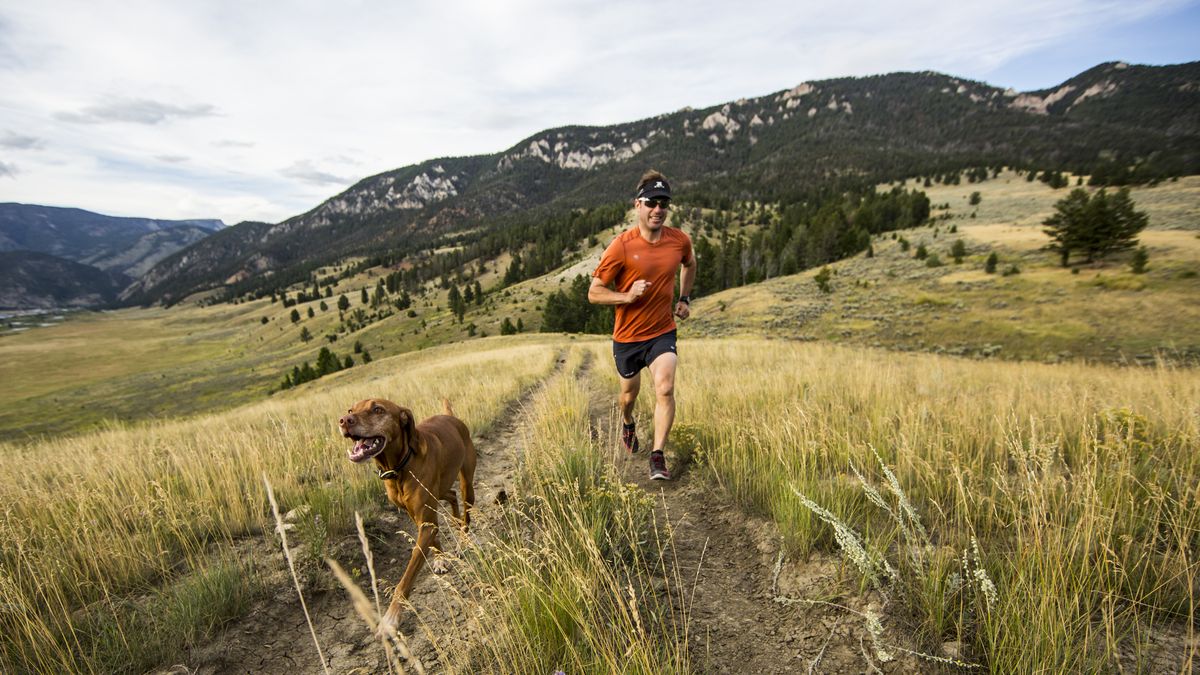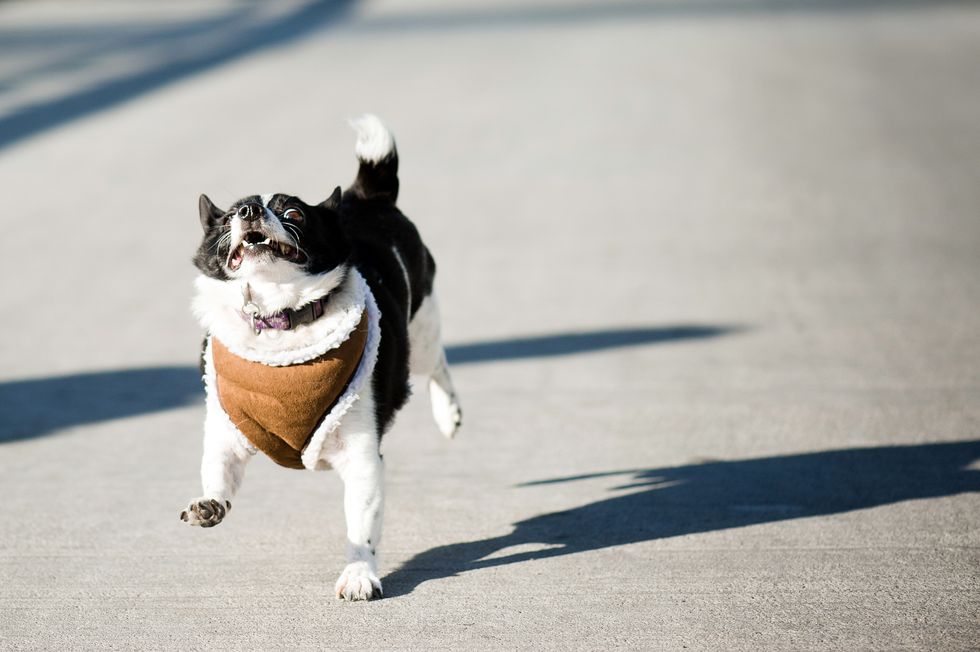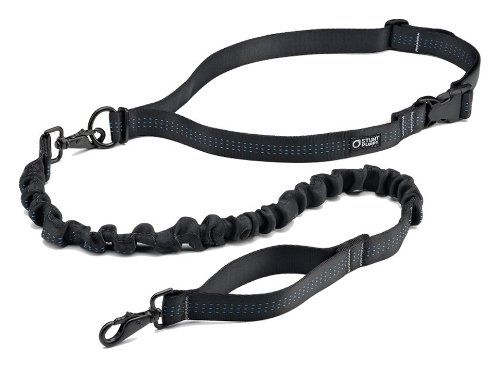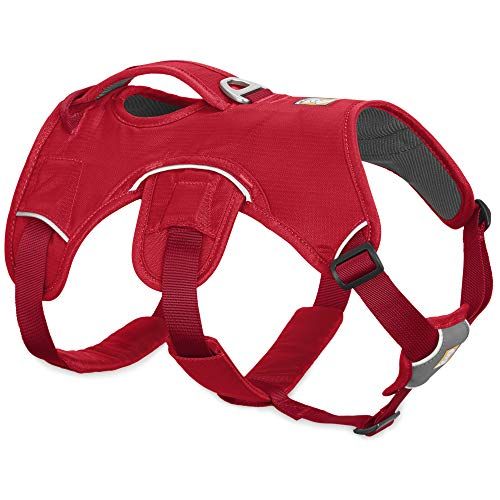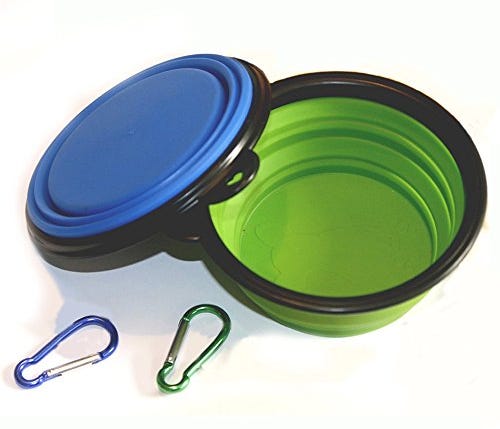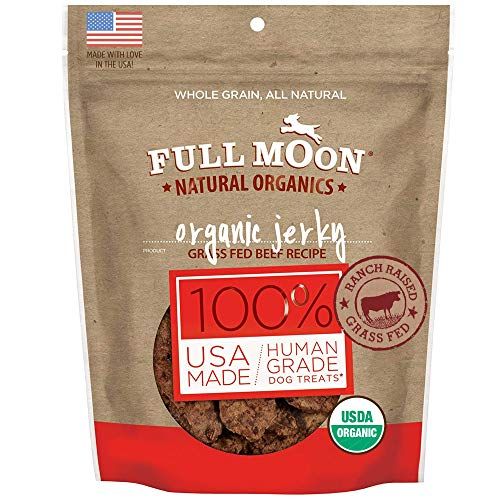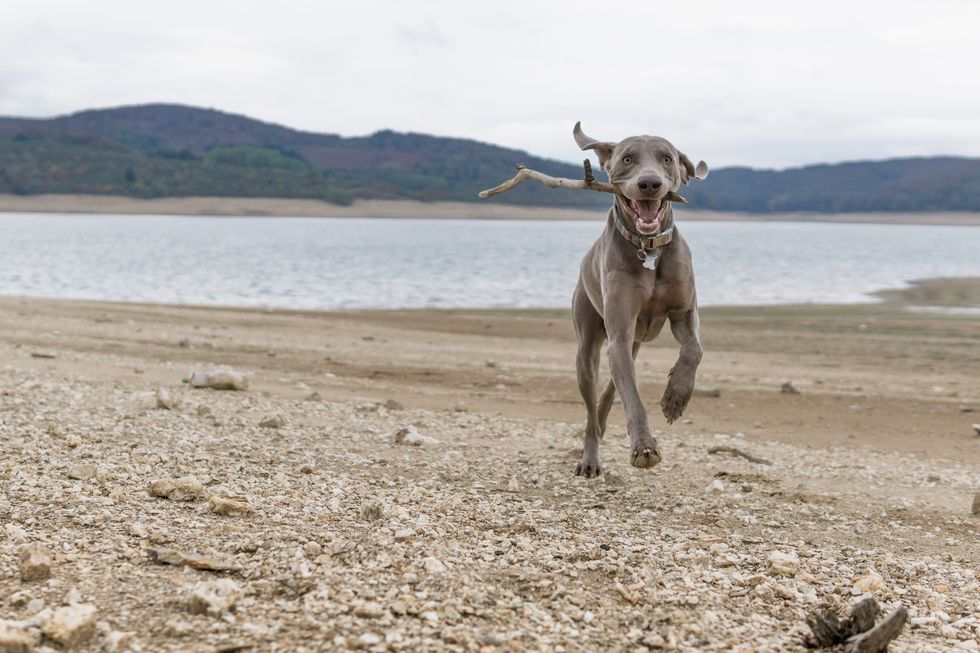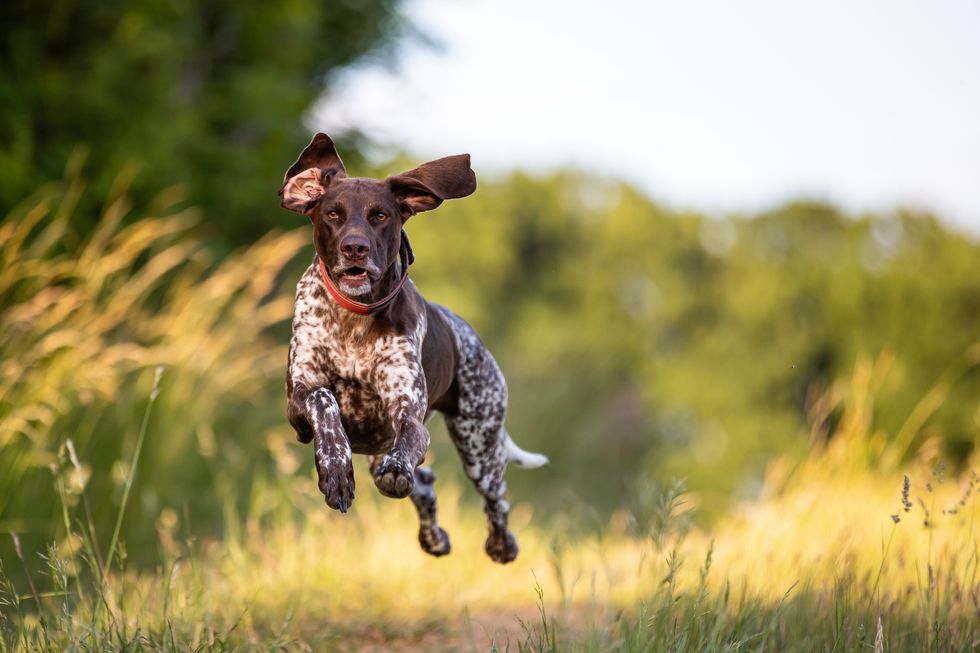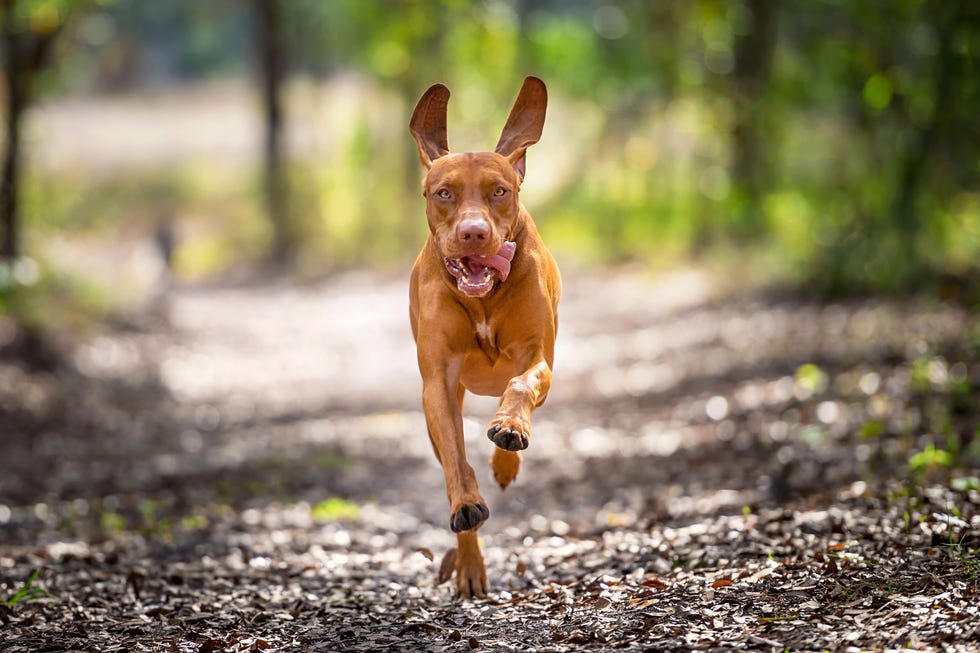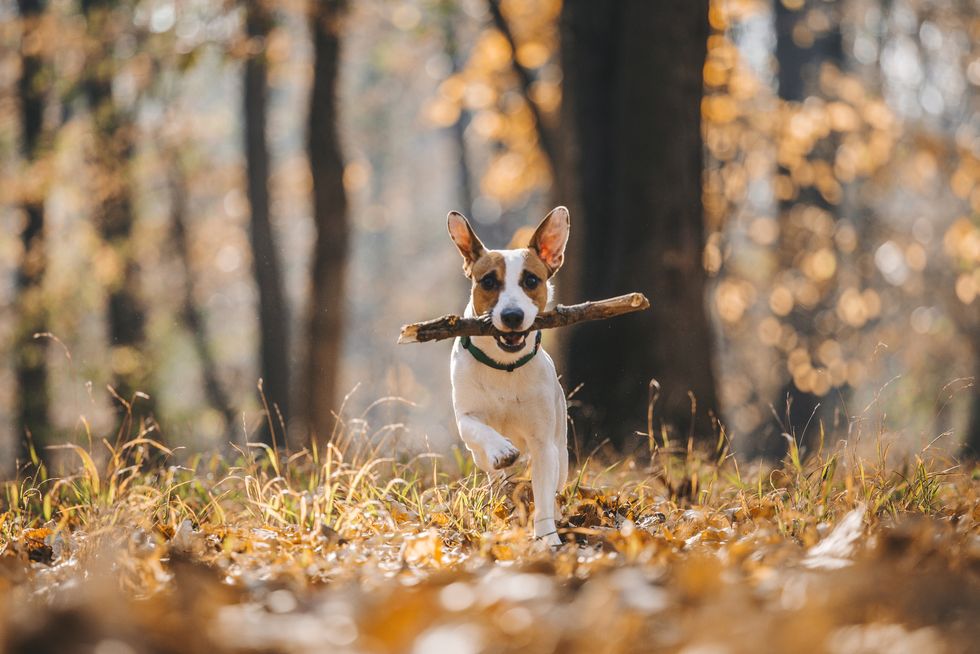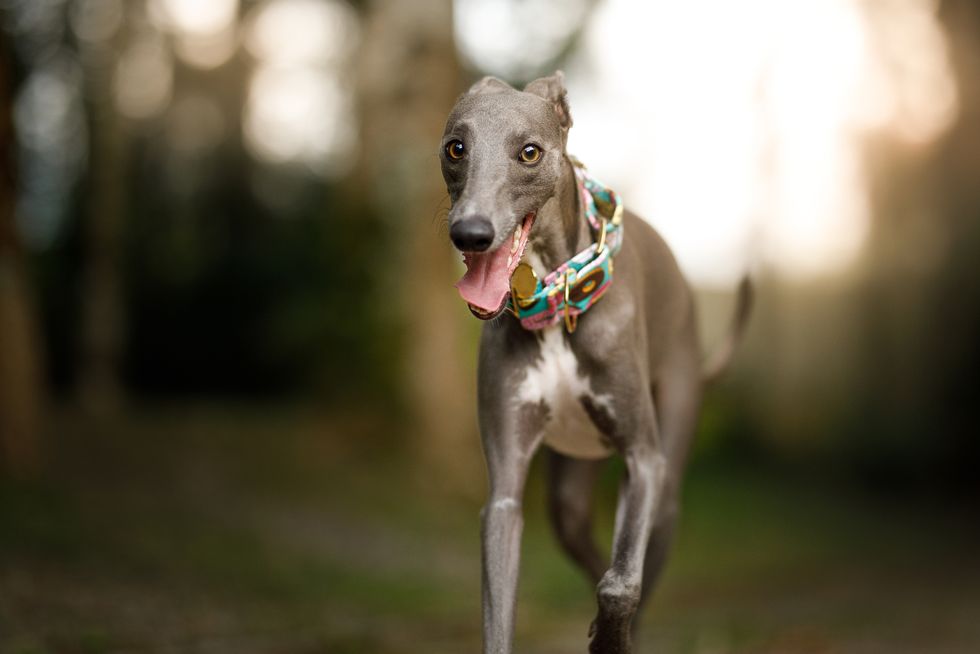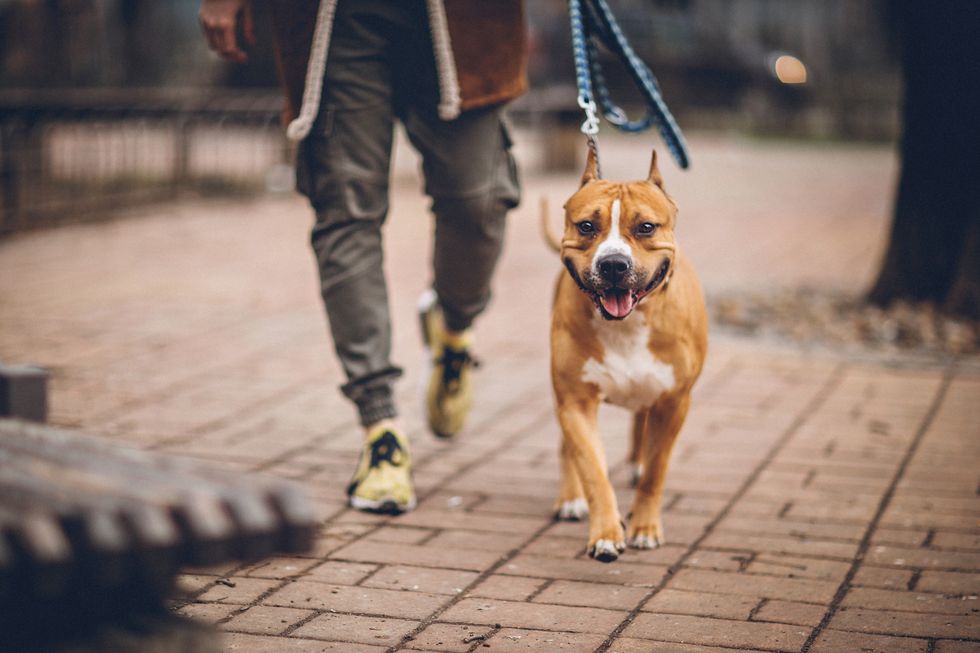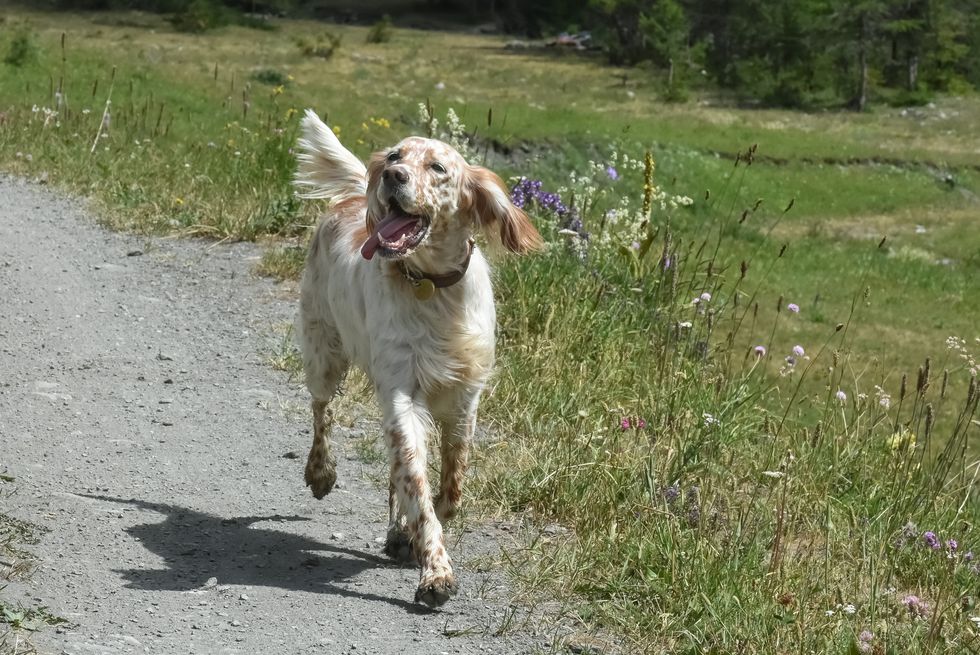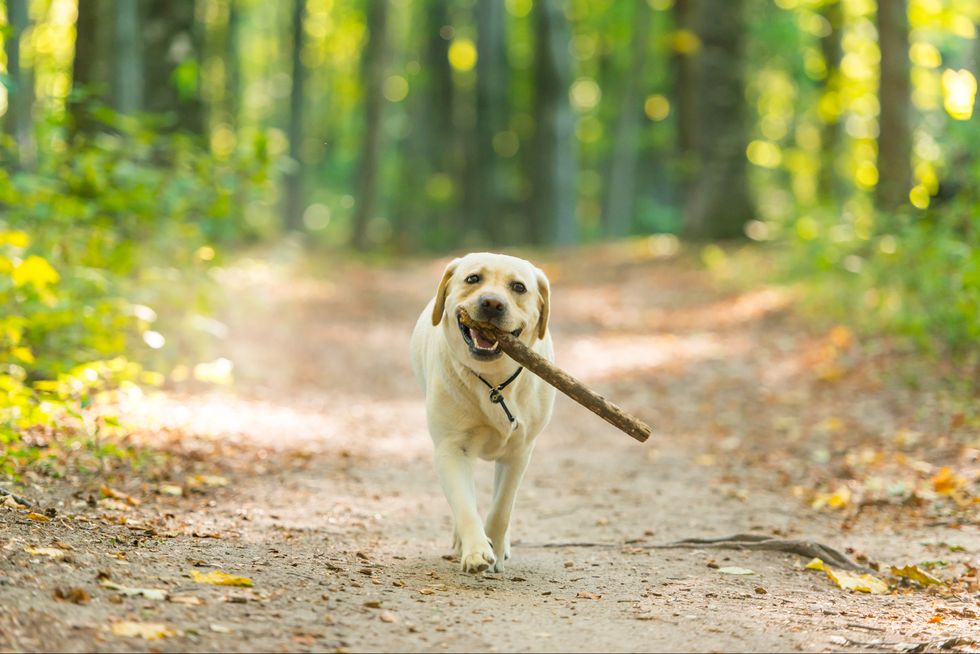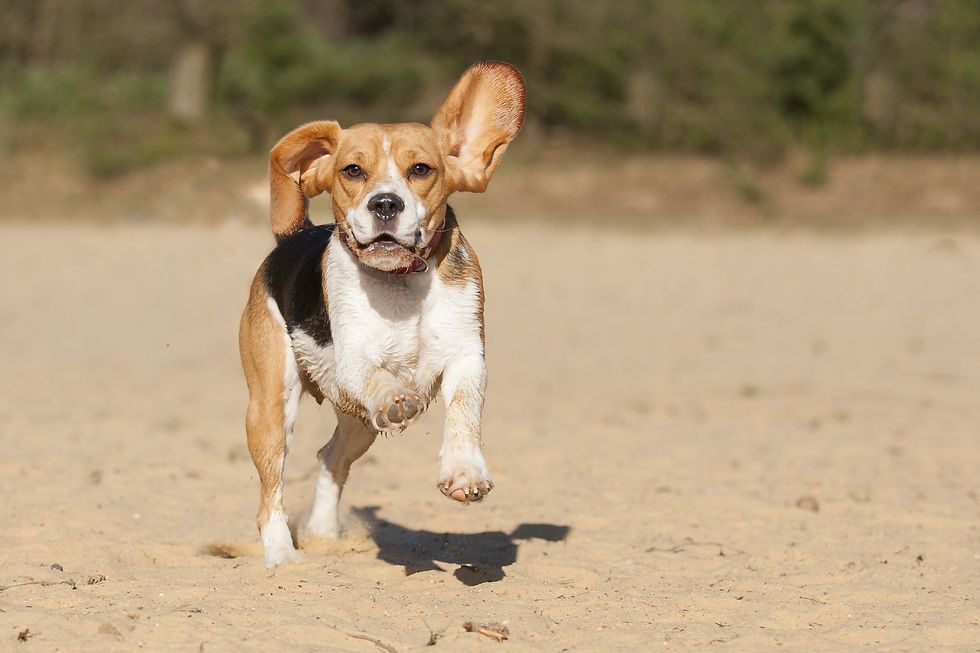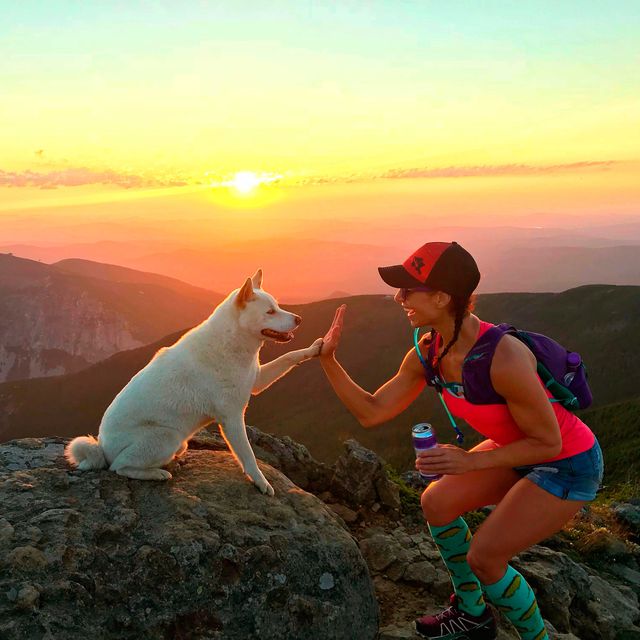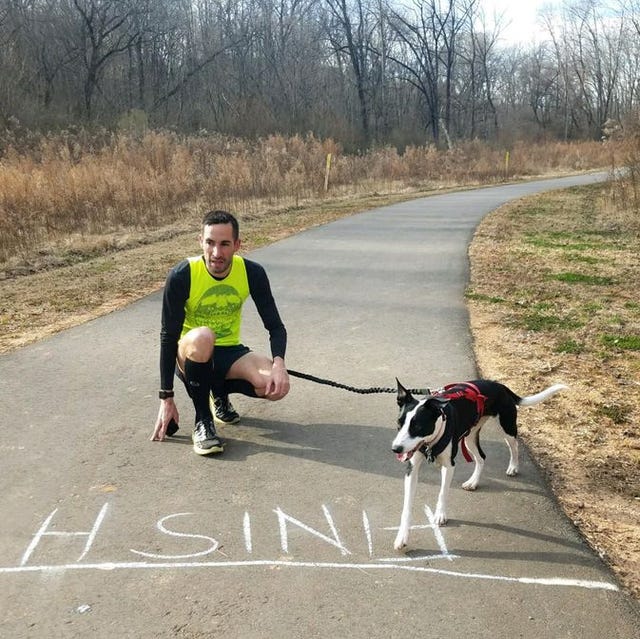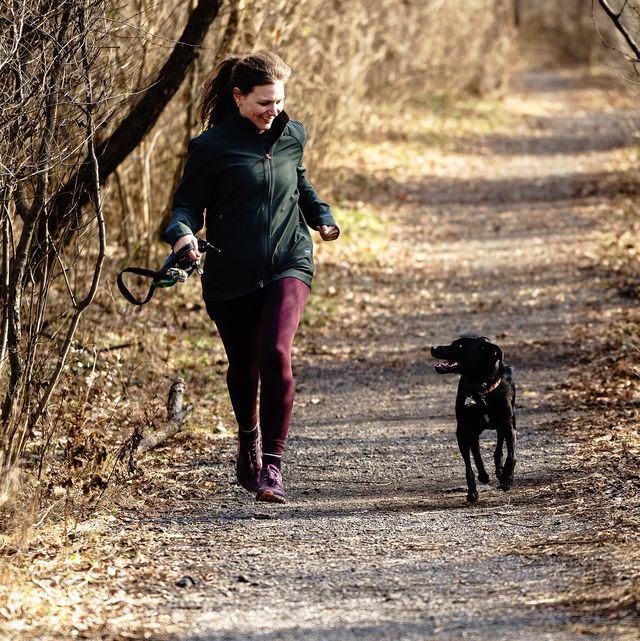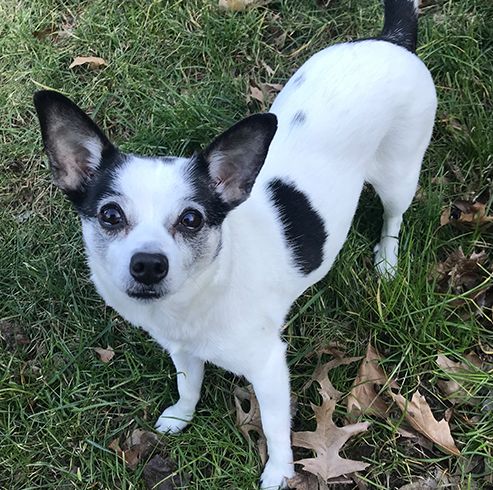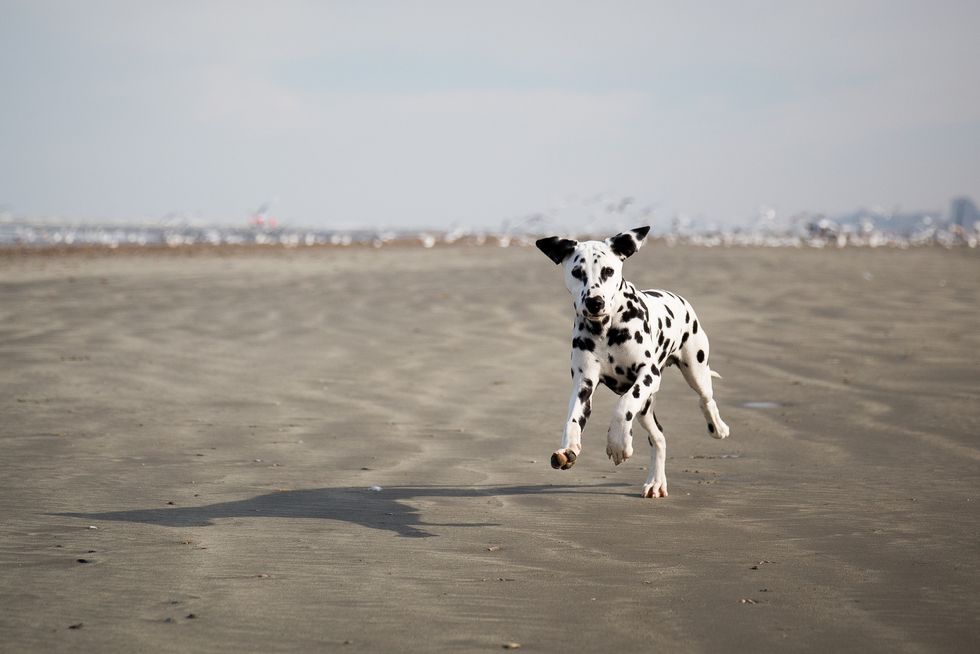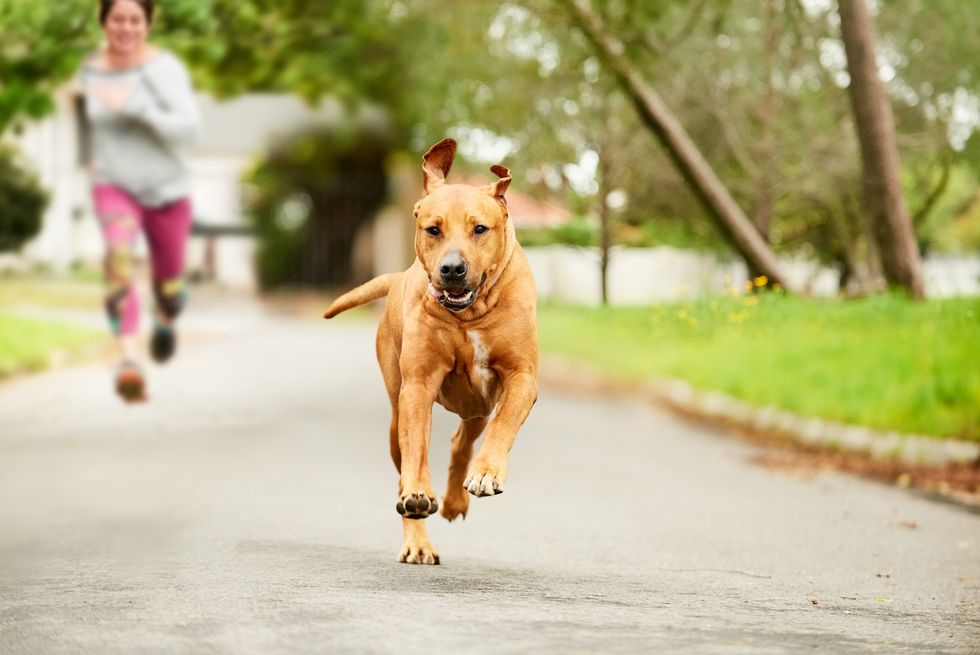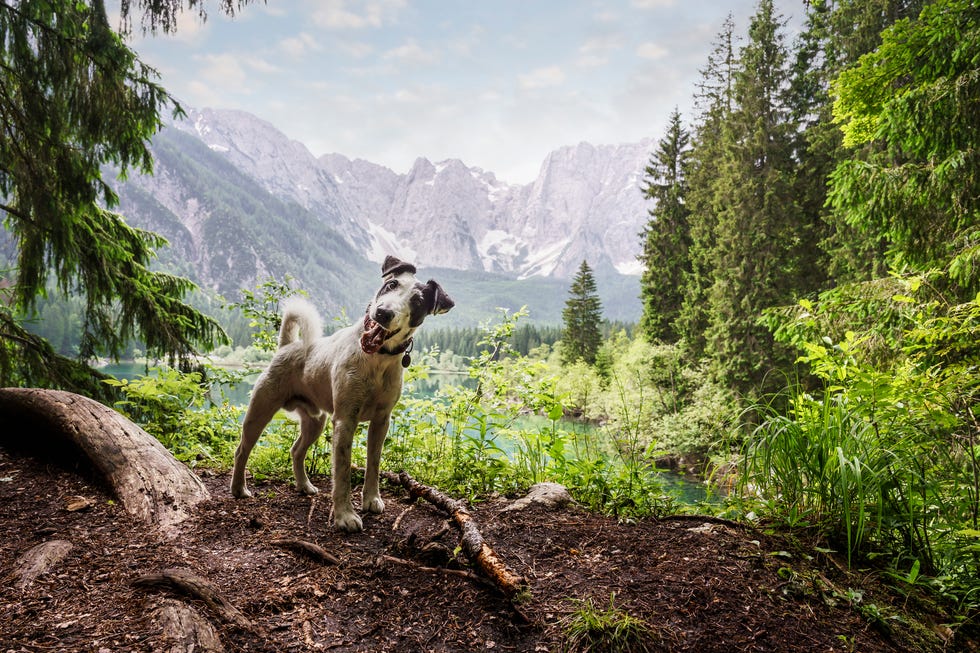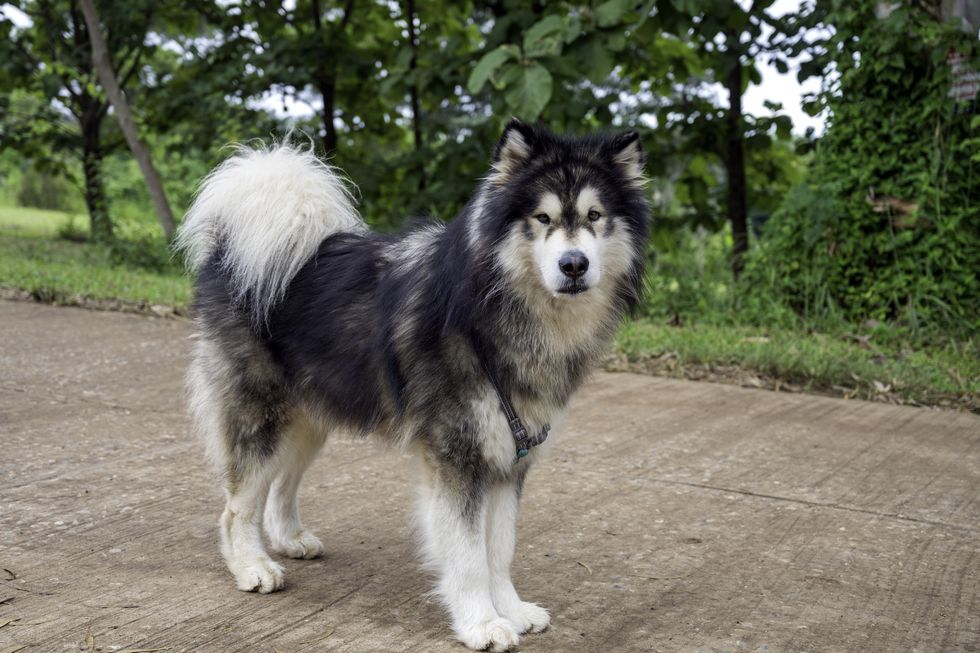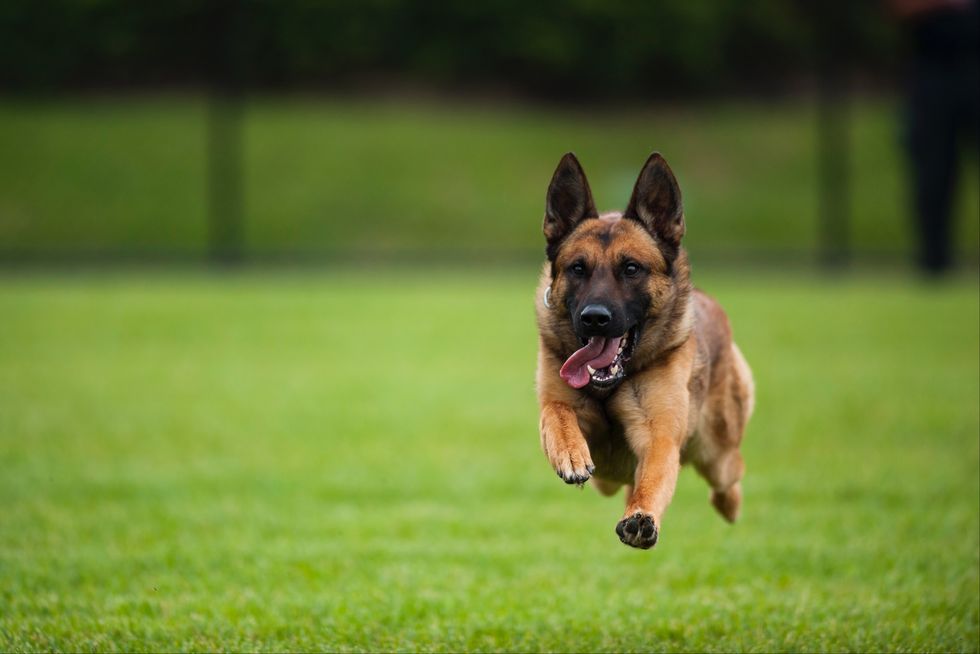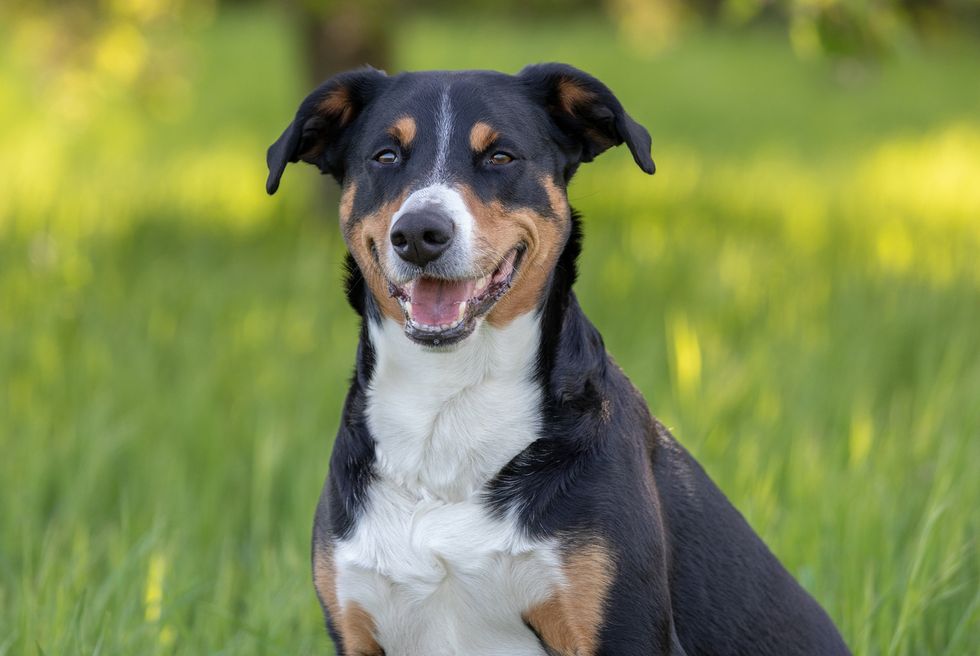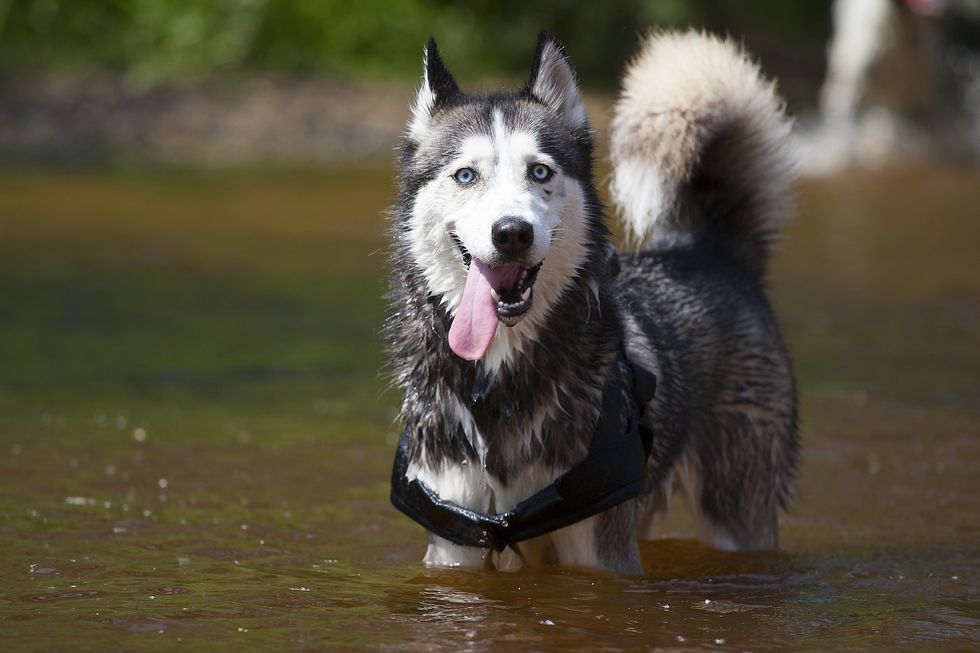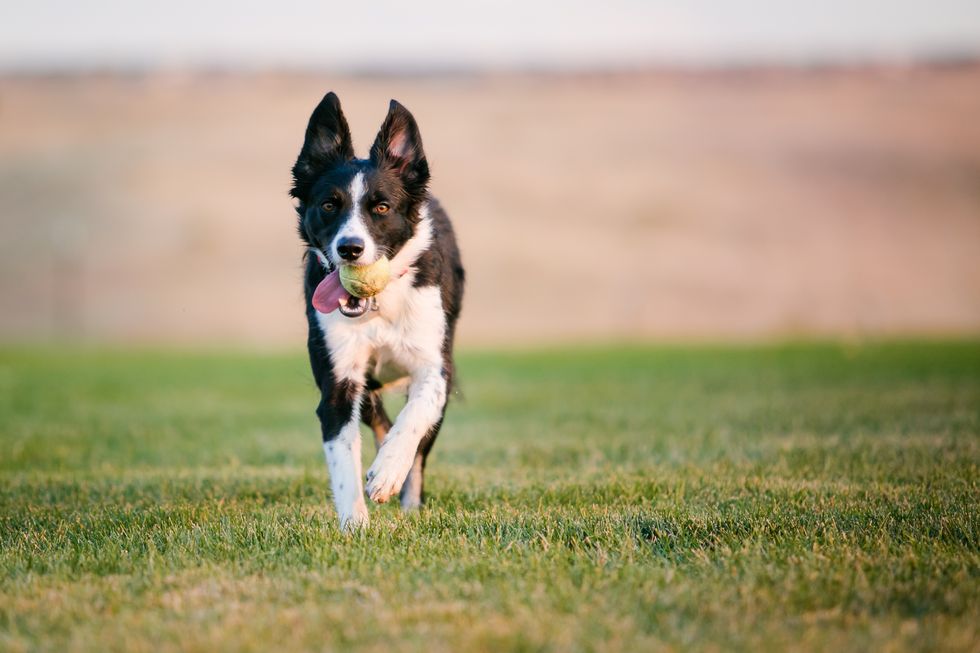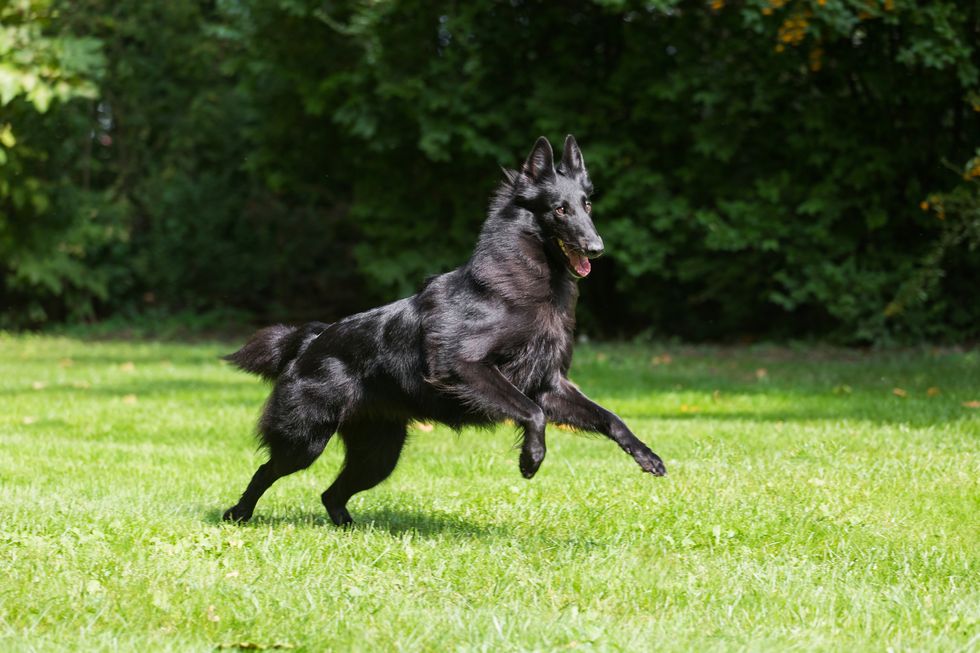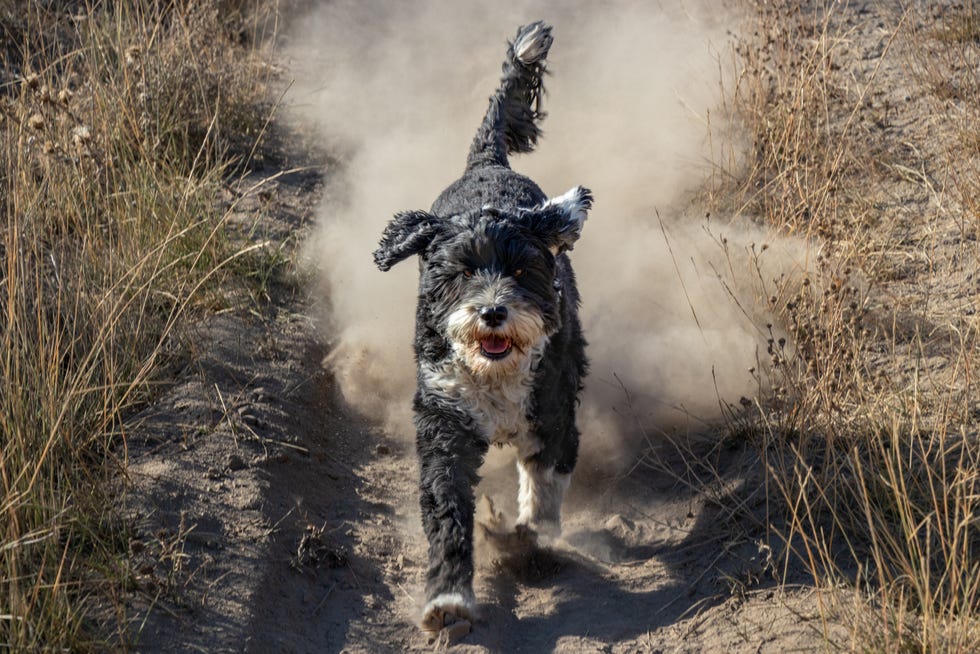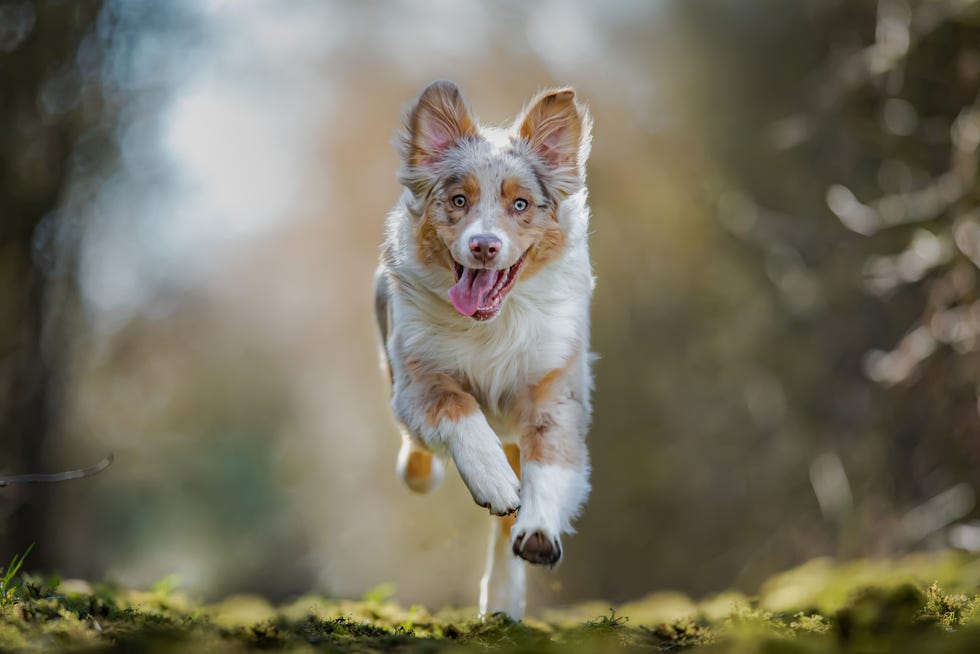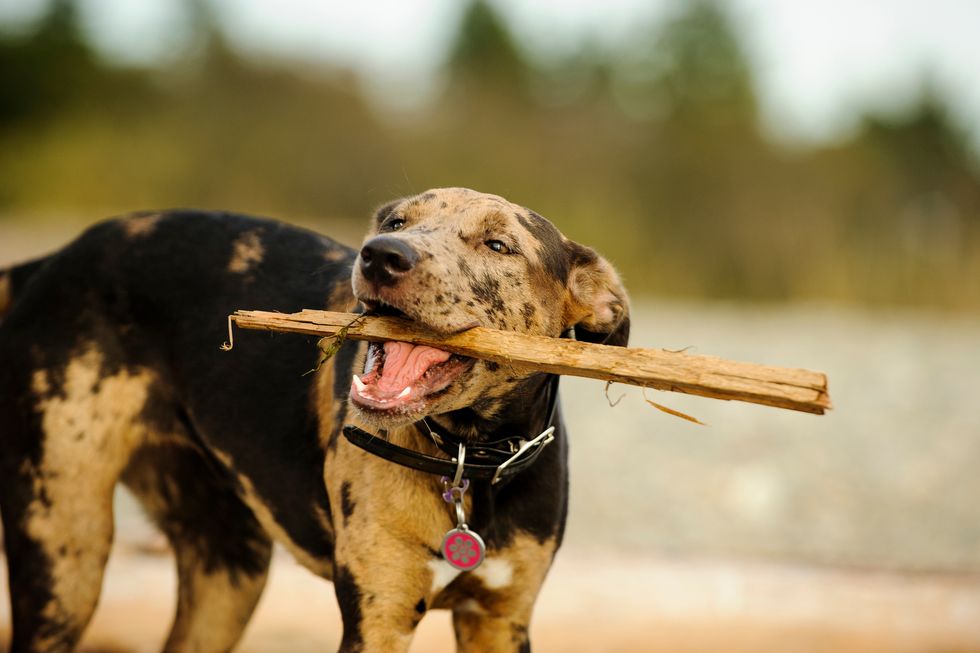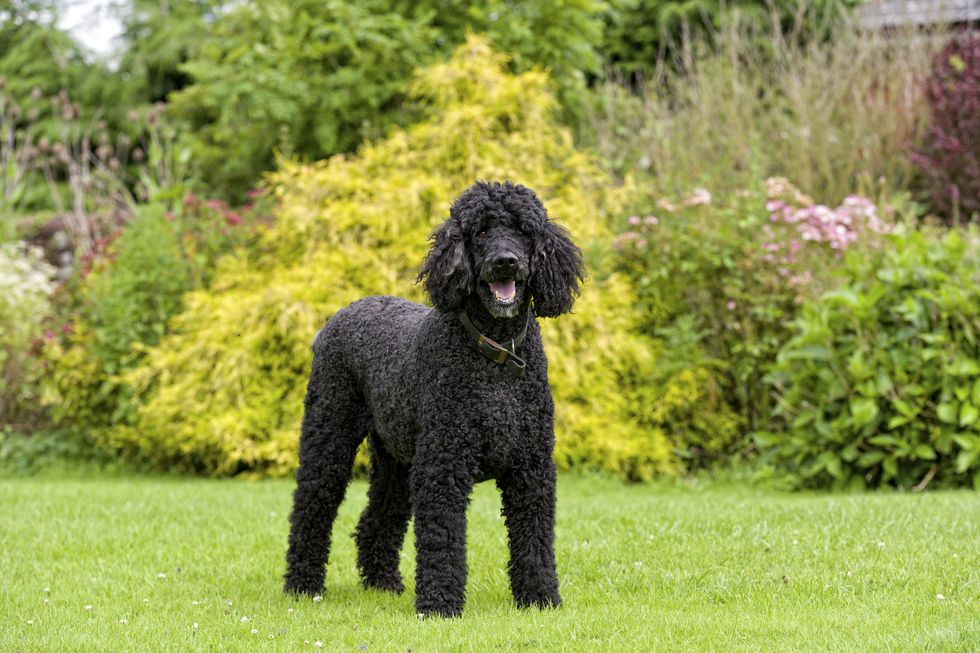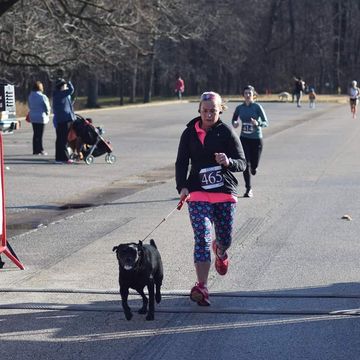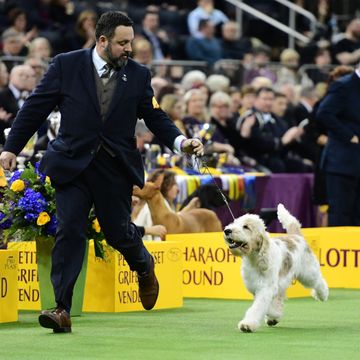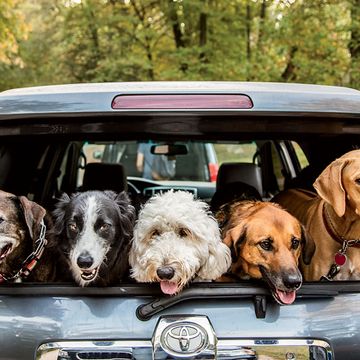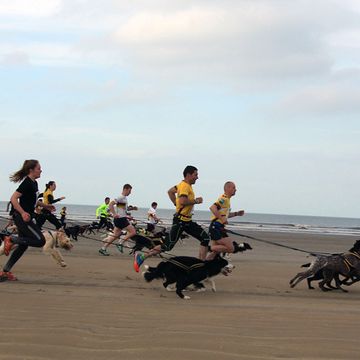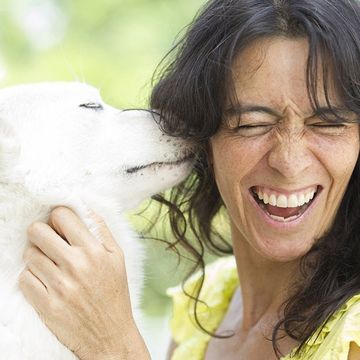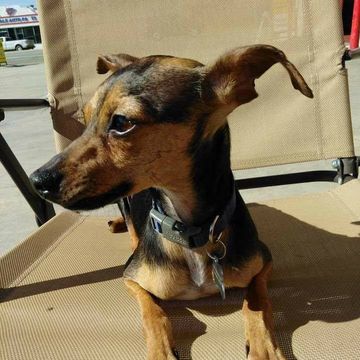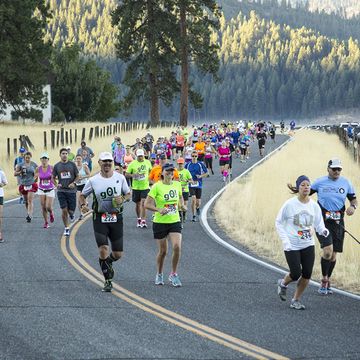If you love to run and you love dogs, you probably asked yourself: what pooch makes the best running partner? Most dogs love to run—some more than others, and not all for long distances. Some do better in warm weather, others in cold weather. So what can you do to find the best running dog for you?
This is a question I had been asking myself after my wife and I bought our first home and finally had space to bring a dog into our lives.
Some breeds, such as huskies and greyhounds, were bred to run, and most working dogs are naturally suited to running. By contrast, squishy-nosed dogs, such as pugs (with some exceptions!) and bulldogs, don’t always make good distance athletes because they’re prone to overheating.
It became easy to see that if you want to go long, run in the snow, or hit technical trails, some breeds definitely rose to the top.
But sometimes you’ll surprise yourself by finding a running dog who loves the sport just as much as you. That was the case when we found Carson, our 10-pound chiweenie (a cross between a Chihuahua and Dachshund) from a local rescue organization. Despite his longer body, short legs, and the general idea that those two breeds of dogs may not be ideal running companions, Carson can go. Maybe it’s only for a mile or so, with the occasional stop at a tree or stop sign, but going out with him on a nice day brings just as many runner’s high vibes as that perfect long run by myself.
That’s all to say that just as running as individualized for humans, it can be that way with your dog. However, with the proper training, some patience, and tips from the experts in this story, you too can hit the roads with your pup.
Tips Before You Start Running With Your Dog
Ease any dog into a running program. Start off at a comfortable pace where you can communicate clearly with your dog. (The last thing you want to be is winded when trying to slow an energetic pooch down on the road.) And start out by doing two to three miles during your three to four runs per week.
Once you have a week or so of running down at that easy pace, try adding 0.5 mile or 10 minutes to your original two or three mile runs during the week. If your dog tolerates the 0.5 mile increase easily, try and pick up the pace or add an extra run on the weekends. After a month of prep work and seeing that your dog can easily handle the base mileage, start trying for a four to five mile/day regime.
Keep in mind, most dog trainers strongly recommend at least one–if not two–days of rest for both you and your dog.
Dog Running Programs
If you can’t get out each day with your dog, consider a dog running program near you. Many are popping up around the country, and professionals know how to get your dog acquainted with the sport. That means when you take them out on the weekend, it will be less hassle for you.
One final tip: If your pup needs a bathroom break, be sure to clean up after them. The runners who follow in your path will thank you!
You will also want to consider the right gear for running with your dog. We have some recommendations below.
Find Your Best Running Dog
We got help from professional dog trainer JT Clough, who cowrote a book about training running dogs; Bryan Barrera, a professional dog runner from Washington, D.C.; Karen London, a certified animal behaviorist who trains and runs with dogs; and the American Kennel Club to give us the lowdown on the best running dogs.
Mixed breeds that you find at your local animal shelter can also be the best running partners you can find. Almost anything with a hint of one of the 20 breeds listed below could be ideal. While there will always be variation within breeds and individual dogs, we hope this list can help you find an ideal running companion.
Weimaraners
Best for: Long, steady runs; going fast; running on trails
Their medium, well-muscled build often makes this energetic breed a great companion. “They need an extraordinary amount of exercise and mental stimulation,” says JT Clough, a dog trainer and author who focuses on fitness lifestyle in her dog coaching practice, Maui Dog Remedies. “They also want to be right by their person, making the Weimaraner an excellent running partner.”
German Shorthaired Pointers
Best for: Long, steady runs; going fast; running on trails
This medium-size hunting dog is smart and willing to tag along on just about any run because of its high energy. “They are quick, durable runners that have a good top speed, but also have the build to sustain high mileages,” says Bryan Barrera, founder of D.C. Dog Runner.
Vizslas
Best for: Long, steady runs; going fast; running in the heat; running on trails
Hope you like getting out the door, because Clough says this breed is usually a ball of energy that should get an hour of exercise each day. “I’d say pound for pound the best running dogs for any type of running,” adds Barrera. “They are so versatile; they can cover a ton of ground because of their long gait and can cruise on autopilot as long as you want.”
Parson Russell Terriers
Best for: Long, steady runs
This smaller dog, formerly known as the Jack Russell, loves playing and tends to be very eager and active. “They are also hunters, so make sure to spend some time training this breed to run beside you and avoid getting sidetracked looking for prey,” Clough says.
Greyhounds
Best for: Brisk, short runs; going fast
Greyhounds are known for their work on the racing track, but in regular life they are independent and gentle. They’ll love to run with you, just not for distance. “Some are really only sprinters, so don’t expect all greyhounds to log a lot of mileage with you,” says Karen London, a certified animal behaviorist who trains and runs with dogs in Flagstaff, Arizona.
Pit Bulls
Best for: Brisk, short runs
Usually intelligent and often misunderstood, the Pit Bull can be a pleasure once it knows not to pull when on the leash. (Pit Bull is common name for breeds like the American Staffordshire Terrier, pictured, and Staffordshire Bull Terrier.) “They are low to the ground and really excel at the shorter distance,” Barrera says. “One of the rare breeds that look like they are working as hard as you when running.”
English Setters
Best for: Brisk, short runs
The American Kennel Club calls the English setter a “symmetrical gun dog suggesting the ideal blend of strength, (and) stamina.” It’s also a fairly active breed and enjoys playing.
Golden and Labrador Retrievers
Best for: Brisk, short runs; long, slow runs
Yes, we know they are different breeds, but they generally have similar running personalities. These friendly dogs usually get along with everybody and have big bodies that can go the distance. “Easy to train and extremely loyal, the retrievers will make a great running partner at just about any distance,” Clough says.
Beagles
Best for: Brisk, short runs
Don’t assume these dogs are like Snoopy chilling on a doghouse roof. This breed often has a mind for sprinting over slogging. They are very active, quick, and require plenty of exercise. Some with a hunter’s mentality have the ability to go a little longer, says London.
Dalmatians
Best for: Long, steady runs
London says Dalmatians are some of the best long-distance dogs, and they love their exercise. Barrera adds you should be mindful of how they run. “They kind of pound the pavement due to their size, so if possible I’d stick to the soft trails.”
Rhodesian Ridgebacks
Best for: Running in the heat; long, steady runs
A strong breed that needs its exercise. “This breed is good in heat so can be a great running partner in warmer climates,” Clough says. Barrera adds that they have a natural gait and internal engine that makes them perfect for going a bit longer.
Fox Terriers
Best for: Running in the heat
This breed is friendly, energetic, and lively. The American Kennel Club suggests early training as Fox Terriers “can eagerly run off to follow any adventure” if not on a leash.
Malamutes
Best for: Running in the cold
A thick coat and stocky build makes this a perfect breed for cold-weather runners. Built to be a sled dog, these dogs crave work and love exercise.
German Shepherds
Best for: Running in the cold
Barrera has run with three German Shepherds—all with varying personalities, and all that love running. “Enthusiasm, intelligence, and the need for vigorous exercise make this breed the perfect running partner,” Clough adds.
Swiss Mountain Dogs
Best for: Running in the cold
These big guys with even tempers are often great family dogs. Mellow at home, but they were built to work on farms, so they enjoy a short jog to get in some exercise.
Siberian Huskies
Best for: Running in the cold
Quick and light on its feet, this working dog usually enjoys any activity. “Very athletic dogs that definitely do best in the colder air, but can hold their own in the spring and fall, too,” Barerra says.
Border Collies
Best for: Long steady runs; running in the cold (just not the snow)
They are amazing athletes and very energetic, according to Barerra. “Competent, well-trained Collies are a joy to run with and can dart and duck and move with the best of them.” London adds that their coats help them in chilly conditions, but dense snow can get trapped in their fur, making them too cold.
Belgian Sheepdogs
Best for: Brisk, short runs
This breed generally has lots of energy to burn on many types of runs. “Highly trainable, but make sure to address nipping in the beginning as it is a byproduct of their innate herding,” Clough says.
Pharaoh Hounds
Best for: Brisk, short runs
While they don’t need to pound out several miles a day, the Pharaoh Hound requires the right amount of exercise—and a run certainly fits the bill. “These are great,” London says. “I can’t ever let them set the pace because they always want to run faster.” It’s a hunting dog, so be aware that it may want to chase after small animals until it’s trained.
Portuguese Water Dogs
Best for: Trails with obstacles; long, steady runs
The American Kennel Club says they are usually affectionate, adventurous, and energetic. “They are working dogs and basically treat the run as a job by putting their heads down and hammering out miles,” Barrera says. As the name suggests, they also don’t mind a little dampness under their paws.
Australian Shepherds
Best for: Trails with obstacles
“The one I run with is the quickest, most agile, sure footed runner I have in my stable of runners,” Barrera says. Very energetic, these dogs often move around all day if you let them.
Catahoulas
Best for: Long, steady runs
The official state dog of Louisiana, the Catahoula Leopard Dog has a strong work ethic. Once it gets the right amount of exercise, the Catahoula is a calm companion.
Standard Poodles
Best for: Long, steady runs
They have a game-playing attitude, Clough says, which can be a good diversion if your own run feels lacking. “If you are looking for some fun on a run, the attitude of a Standard Poodle will do the trick,” she says. Leash training is a must, but they also are good in mucky environments, like crossing a shallow stream, says London.
Information from contributing writer Christie Aschwanden was used in this article.

Brian has spent more than a decade focused on creating compelling news, health, and fitness content—with a particular interest on enthusiast activities like running and cycling. He’s coordinated coverage of major events like the Boston Marathon, New York City Marathon, and Tour de France, with an eye toward both the professional race and the engaging stories readers love.
